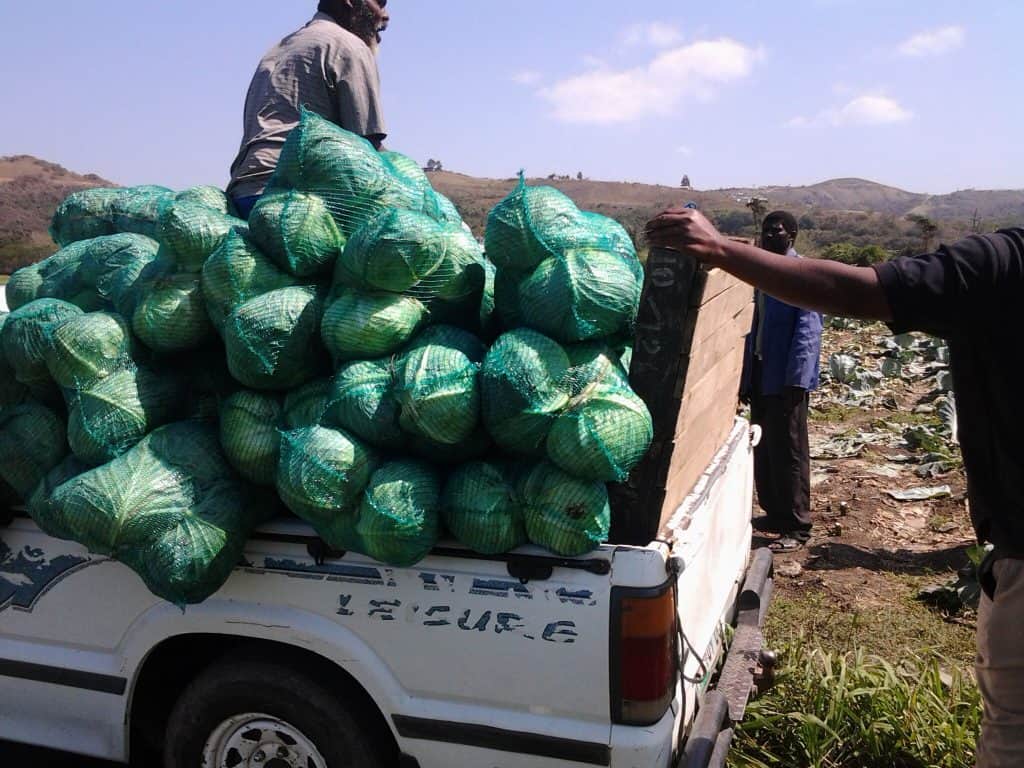
The Institute for Food Nutrition and Wellbeing (IFNuW), at the University of Pretoria, has created a solution to improve food security for the poorest communities in South Africa.
The problem
54% of South Africans live below the poverty line, living on R779 or less a month many can barely afford enough maize to feed their family three meals a day. “A diet consisting largely of maize and bread cannot meet a person’s nutritional needs,” comment’s research lead, Professor Sheryl Hendriks. “Many communities turn to subsistence agriculture to bridge this nutritional gap, but in the marginal farming areas that make up large parts of rural South Africa, they struggle to grow enough food to meet their daily food requirements.
“Malnutrition has a dramatic knock-on effect not only on individuals in terms of stunted growth, limited cognitive development and a compromised immune system. But it has an impact on our economy.” Over the past four years, researchers have been surveying what communities in four of South Africa’s poorest rural communities grow and eat. Digitally recorded, for immediate use by researchers, at each community, enumerators used tablets to record survey data on diet, health indicators and farming in the community. “We wanted a fuller picture of how communities feed themselves, and how reliant they are on rain‐fed and irrigated agriculture to do this, their income and access to diverse food groups,” advises Prof. Hendriks.
The solution
IFNuW has digitally collected data relating to foods which are grown in the four sites that the research was conducted at and combined it with data from food composition tables to understand the nutritional value of different crops. From this insight, the team has developed recommendations for communities in specific regions on what to grow and how to grow food that addresses their nutritional needs.
“The findings of the study and the recommendations can empower communities in taking responsibility for their nutrition by providing them with locally-relevant information while helping government and NGOs design more appropriate agriculture-based interventions,” advises Prof. Hendriks.
With input from communities, these recommendations have been converted into series of visually informative brochures and posters. Researchers have made these guides available to community members and agricultural extension officers in a bid to help residents improve their nutritional status through better farming choices. University of Pretoria MSc student Corne van der Merwe has developed Smart Grow, a smartphone app to make the data available electronically. This app can be downloaded here, along with installation instructions. “The app was an afterthought,” admits Prof. Hendriks. “When working in the field collecting data, we were surprised how tech savvy the young people employed as survey enumerators in these communities were. We realized there was an opportunity to make the recommendations available through this technology, putting the recommendations into the hands of farmers and young people.”
Impacting policy
The findings of this project have also provided valuable input for the SA National Food Security Information System, currently being developed by the Department of Agriculture, Forestry and Fisheries (DAFF). “Researchers and policy makers need access to relevant and up-to-date information to make informed decisions,” adds Prof. Hendriks.
According to the SA Constitution, South Africans have a right to food, proper nutrition and water, And, according to a national survey conducted in 2012, 17% of households in South Africa struggle to access food and in that year, 11% of households experienced hunger, of those, 6% of South African households experienced severely inadequate access to food. “More people need more access to food, proper nutrition and water, our research can positively impact policy creation moving forward,” adds Prof. Hendriks.
Article courtesy of IFnUW at the University of Pretoria. Discover the story in full at Research Matters, the University of Pretoria research website: http://www.researchmatters.up.ac.za/researcher-projects/view/29
related Articles
New book: “Resilience and Food Security in a Food Systems Context”
Resilience and Food Security in a Food Systems Context is a recently published, open-access resource which delves into why we…
Some plants can short-circuit the toxic effects of metals – now scientists...
Some plants can short-circuit the toxic effects of metals – now scientists are trying to harness their power Heavy metals can…
Breede River Municipality hosts unique food security learning journey
“During two sunny winter days in early May, the Breede River Municipality (BVM) hosted a ‘learning journey’, an innovative…



